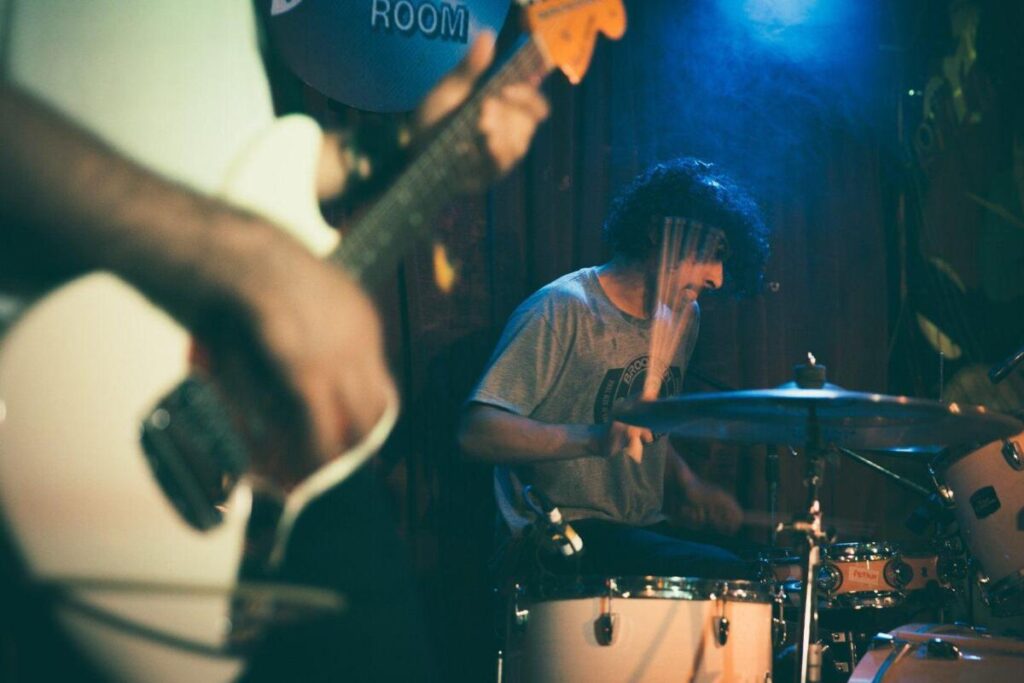If you’re passionate and dedicated to a career in music, the last thing you want to be is a “starving artist.” Unfortunately, many independent musicians struggle to make enough money for everyday expenses, including rent.
In a 2019 Vulture interview, indie music veteran singer-songwriter Cass McCombs said, “I don’t really understand how any musician can afford to stay in one place…we don’t make enough money to afford an apartment. I know pretty much half of the musicians in existence have a side job of some sort.”
That quote might not seem encouraging if you’re trying to fund your music career. But, it’s realistic, and can give you the motivation you need to make money and move forward while pursuing your dreams.
As a musician, you have to consider living expenses well beyond rent. From healthcare and retirement funds to more immediate needs like equipment, merchandising, and touring expenses, just about everything you need is going to cost money.
If you’re only making $50-$300 per gig, how can you afford those necessities and fund your career?
Market Your Music
Your main monetary focus should be to sell your music and merchandise. If you truly want a career in the music industry, you have to look at yourself as a business. Selling music and merch at your shows is a start, but if you’re not capitalizing on different avenues, you’re missing out on revenue.
Technology can end up being your best friend when you’re trying to sell music and merchandise. Do some research on various platforms where you can sell your music online. Some of the best options are:
- Musicoin
- Artisound
- Fat Llama
- Qrates
- Encore
Working with larger platforms like iTunes and Spotify might not make you as much money, to start. But, because they are trusted platforms, getting your name out there will help to improve your overall recognition.
In addition to using other sites to sell your music, you should have your own quality website for fans to visit. Your website needs to be the central hub for your music career, with information about you, photos and videos, a tour schedule, and a merch store. If you’re on a tight budget and you’re not sure which merchandise items to offer, consider what fans tend to buy the most. T-shirts are always a popular choice. But, patches and pins are becoming more popular, and they’re cheaper to make.
Crowdfunding
Whether you’re just starting out or you’ve developed a passionate fanbase, crowdfunding can be a big help. Again, marketing yourself is crucial if you want to get people to donate money. Create videos and an interesting story that explains why you need the money and where it will go.
It’s not uncommon for musicians to use crowdfunding when they’re trying to create a new album. Recording, mixing, mastering, and producing can end up costing thousands of dollars. Crowdfunding and online fundraising can also be used to support an upcoming tour. If your fans want more of your music, they’re likely to contribute.
So, how can you market an online fundraiser? Start by promoting it on whatever crowdfunding platform you use. You can partner with a popular business and ask them to include a donation prompt on their site, or you can work with a social media influencer to gain more traction. Like any other type of advertising, word-of-mouth is important. Your goal should be to have as many people share your fundraiser as possible. Even if everyone only donates $5, that can add up quickly when it’s being shared with hundreds of people.
Pick Up a Side Hustle
As Cass McCombs said, it’s not uncommon for musicians to work a side job. Thankfully, you can make extra money and focus on your music career without having to sacrifice either. Getting a traditional part-time job is always an option. But, working as a freelancer or doing something in the gig economy will offer you more freedom.
One of the best things you can do is to create a budget. Decide what you need each month, and schedule your workload around that. Keep in mind that life happens. It’s important to budget for the unexpected. No one wants to think about something negative happening. But, if you’re a musician dealing with something like a chronic illness, treatment can be expensive. Another online fundraiser can help. But, if you stay calm and organized, you can fund your treatment through earned income, too. Either way, it’s important to include unexpected expenses in your budget.
Your side hustle should cover your “everyday expenses”, including:
- Rent
- Utilities
- Food
- Paying off any debts/loans
- Transportation
It’s up to you whether you want to use your side hustle to fund your music career, too, or if you want to keep it separate. But, it will keep you afloat while you move forward with your career. The beauty of working in the gig economy is that you can take on as much or as little as you want, and most work can be done from almost anywhere – a huge positive when you’re on the road!
Working toward your dreams of hitting it big is a good thing. But, it doesn’t happen overnight. In the meantime, finding ways to fund your music career while taking care of life’s regular expenses is necessary. Keep these ideas in mind to make it happen so you can keep playing and performing.
Courtesy of Indiana Lee
